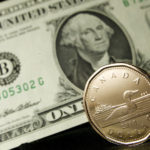SABMiller Plc reported a fall in sales in China and Australia, causing overall deliveries to jump by 5% in the first fiscal half ended September 30th, trailing forecasts for 5.5%.
The producer of Miller Lite, Grolsch and Peroni said that volume of beer fell 1% during the six months ending September, including a 3% decrease in the most recent quarter. In the Asia Pacific region deliveries fell 8%, most noticeably in China, due to bad summer weather that drove customers away from beer. China is one of the worlds biggest beer consumers, responsible for around 25% of global consumption.
In a statement Chief Executive Alan Clark said that growth was hurt by “weaker lager-volume performance in the second quarter, balanced by strong growth in soft drinks”
as soft drinks sales surged 9% in the second quarter.
Overall Q2 revenues rose by 3% in the three months through September 30th. Revenue in Africa grew 8% in the recent quarter, as ale-drinkers continued to favor more expensive beer. An increase of 5% in sales in Latin America, which represents around 30% of the companys profit, made up for the lower demand in other regions.
Much like other companies SABMiller reports in US dollars and suffered from it. Mr. Clark commented on the matter: “Financial performance has been affected by ongoing foreign currency movements as well as weaker second-quarter trading conditions in China and Australia.”
The U.K.-based company has been trying to speed up the slow growth in developed markets by cost cuts and acquisitions. Last month it approached Heineken, a Dutch rival, about a takeover, which however was rebuffed.
SABMiller Plc closed at GBX3 250 on Monday in London. On Tuesday it opened at GBX 3 200 and traded 0.05% lower at GBX3 249 at 14:08 GMT, marking a +8.62% one-year change. The company is valued at GBP52.40 billion. According to the Financial Times, the consensus forecast amongst 64 polled investment analysts covering SABMiller Plc advises investors to hold their position in the company. This has been the consensus forecast since the sentiment of investment analysts deteriorated on Apr 18th, 2014.





